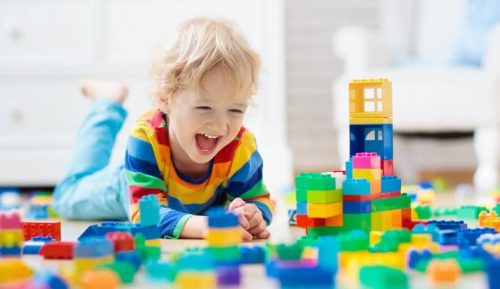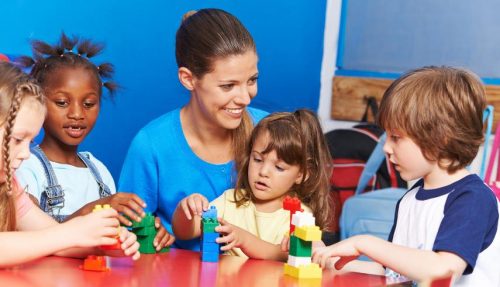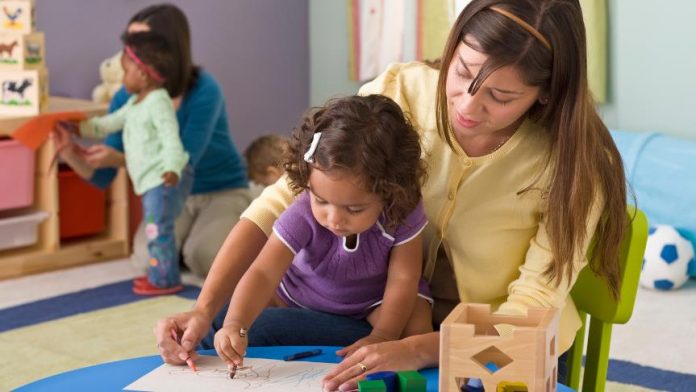Table of Contents
Introduction
As parents, we want nothing but the best for our children. We strive to create a nurturing environment where they can grow, learn, and thrive. In today’s fast-paced world, many parents face the decision of whether to enroll their children in child care or opt for other care arrangements.
One of the critical decisions parents often face is choosing reliable child care options for their children. Quality child care centers provide a consistent and structured learning environment for children. Through daily routines, planned activities, and age-appropriate curriculum, children develop important skills and knowledge that prepare them for future educational milestones. In this article, we will delve into the untold benefits of child care and explore why it can be a game-changer for your little ones’ development and future success.
Why Child Care is a Game Changer for Your Little Ones?
Social and Emotional Development
Child care provides a unique opportunity for children to interact and socialize with peers their age. It fosters the development of essential social skills such as sharing, taking turns, and cooperation. Through daily interactions and guided activities, children learn how to navigate relationships, develop empathy, and build friendships. These early social experiences lay a solid foundation for their emotional well-being and future social interactions.
Social and emotional development is a fundamental aspect of a child’s overall well-being and success. It encompasses a range of skills, including self-awareness, self-regulation, empathy, communication, and problem-solving.
 These skills not only contribute to positive relationships and interactions but also play a crucial role in academic achievement, mental health, and overall life satisfaction. Child care settings provide a rich environment for children to develop and practice these essential skills.
These skills not only contribute to positive relationships and interactions but also play a crucial role in academic achievement, mental health, and overall life satisfaction. Child care settings provide a rich environment for children to develop and practice these essential skills.
High-quality child care environments prioritize the creation of nurturing spaces where children feel safe, supported, and valued. These environments promote positive social and emotional development by providing opportunities for exploration, play, and social interaction. Child care providers create an atmosphere that fosters a sense of belonging, encourages positive relationships, and promotes a growth mindset. They ensure that the physical environment is stimulating, age-appropriate, and conducive to fostering social and emotional growth.
Cognitive and Academic Growth
Quality child care programs offer a structured curriculum that stimulates cognitive development and prepares children for academic success. Through age-appropriate activities, children are exposed to early literacy, numeracy, problem-solving, and critical thinking skills. Qualified educators facilitate learning experiences that ignite curiosity and foster a love for learning. Research shows that children who attend high-quality child care programs demonstrate better school readiness and academic performance.
Cognitive and academic development are essential components of a child’s overall growth and future success. Cognitive development refers to the process of acquiring knowledge, understanding concepts, and developing thinking skills.


High-quality child care environments prioritize the creation of stimulating spaces that foster cognitive and academic growth. These environments are designed to engage children’s curiosity, promote exploration, and provide a variety of learning opportunities. Child care providers ensure that the physical space is organized, well-equipped, and age-appropriate, with materials and resources that support cognitive development and encourage academic exploration.
Language and Communication Skills
Child care environments are rich with opportunities for language development and communication. Skilled educators engage children in meaningful conversations, storytelling, future junior investing and language-building activities. Exposure to a diverse range of vocabulary, language models, and communication styles helps children develop strong language skills and express themselves effectively. These language abilities lay the foundation for future literacy and academic success.
Independence and Self-Confidence


Cultural Diversity and Inclusion
Child care centers often embrace cultural diversity and promote an inclusive environment. Children from various backgrounds come together, learn about different traditions, customs, and perspectives, fostering respect and acceptance. Exposure to diversity from an early age helps children develop a broader worldview, tolerance, and appreciation for different cultures. It sets the stage for a future generation that values diversity and promotes inclusivity.
Early Identification of Developmental Needs
Qualified childcare educators are trained to identify and support early developmental needs in children. They closely observe each child’s progress and can detect any developmental delays or challenges. Early intervention and support can significantly impact a child’s development, ensuring they receive the necessary assistance and resources to thrive.
Preparation for School Readiness


Support for Working Parents
Child care offers valuable support for working parents who juggle career and family responsibilities. It provides a safe and supervised environment for children while parents pursue their professional goals. Knowing that their children are in a nurturing and stimulating environment gives parents peace of mind and enables them to focus on their work commitments.
Conclusion
Child care is more than just a care arrangement for working parents; it catalyzes your child’s holistic development. The untold benefits of child care encompass social and emotional growth, cognitive and academic advancement, language and communication skills, independence and self-confidence, cultural diversity and inclusion, early identification of developmental needs, preparation for school readiness, and support for working parents.
By enrolling your child in quality child care, you are giving them the tools and opportunities to thrive, grow, and reach their full potential. Embrace the transformative power of child care and witness the remarkable impact it has on your little one’s journey of discovery and success.






































